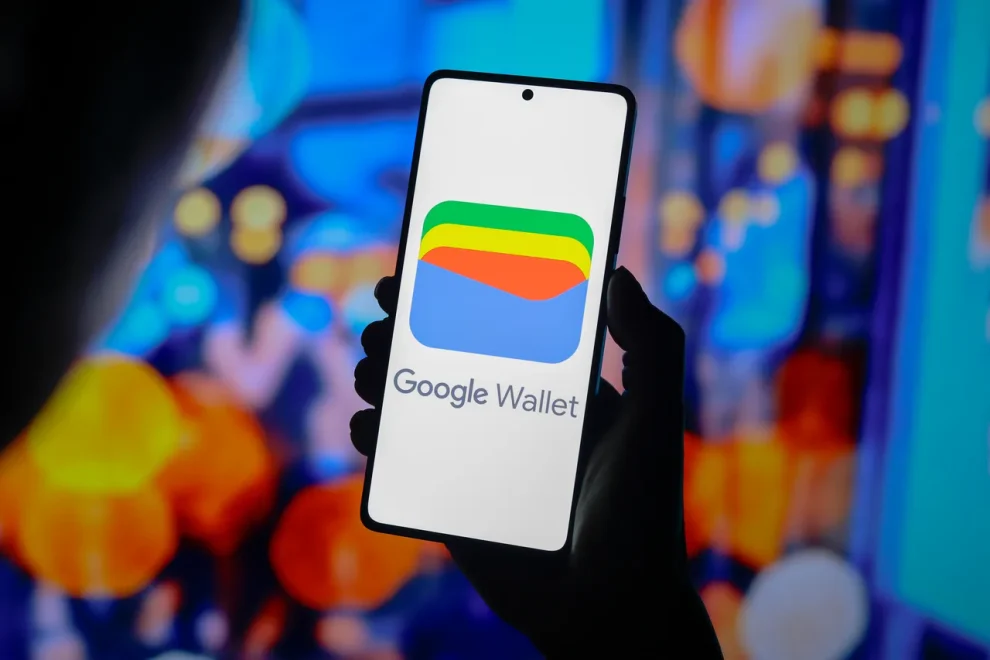Google has announced plans to integrate passport functionality into Google Wallet, while simultaneously achieving record-breaking support from banks worldwide. This dual development marks a significant leap forward in Google’s mission to create an all-encompassing digital identity and payment solution, potentially revolutionizing how we travel, identify ourselves, and manage our finances.
Google’s forthcoming passport feature for Google Wallet represents a paradigm shift in how we think about identity documents. Expected to roll out in phases starting early next year, this feature will allow users to store a digital version of their passport directly on their smartphones.
Sarah Chen, Google’s Head of Identity Solutions, explains the vision behind this move: “We’re not just digitizing a document; we’re reimagining the entire concept of identity verification for the digital age. Our goal is to make travel smoother, identity verification more secure, and ultimately, to reduce our reliance on physical documents.”

Key features of the passport integration include:
1. Secure Storage: Utilizing advanced encryption and biometric authentication to ensure the highest level of security for sensitive passport data.
2. Real-time Updates: Automatic synchronization with government databases to reflect any changes or renewals to the passport.
3. Selective Information Sharing: Users can choose which passport details to share in different scenarios, enhancing privacy.
4. Offline Functionality: The digital passport will be accessible even without an internet connection, crucial for travel scenarios.
5. Integration with Travel Apps: Seamless connectivity with airline and hotel apps for quick check-ins and identity verification.
While the technology is promising, Google faces significant regulatory challenges. The company is actively working with governments and international bodies to ensure compliance with identity verification standards.
Dr. Michael Thomson, an expert in digital identity at Stanford University, comments on the complexity of the task: “What Google is attempting here is unprecedented. They’re not just creating a digital copy of a passport; they’re potentially reshaping the entire global identity verification system. This requires careful navigation of a complex web of international laws and agreements.”
Google has confirmed ongoing discussions with the International Civil Aviation Organization (ICAO) and several national governments to establish standards for digital passport acceptance. The company aims to launch pilot programs in select countries by mid-2025, with broader rollout plans contingent on regulatory approvals and successful trials.
The announcement has naturally raised questions about privacy and security. Google has been quick to address these concerns, outlining a multi-layered security approach:
1. End-to-End Encryption: All passport data will be encrypted on the device and during any transmission.
2. Biometric Authentication: Access to the digital passport will require fingerprint or facial recognition.
3. Blockchain Technology: Implementing blockchain for an immutable record of passport usage and updates.
4. Regular Security Audits: Commitment to ongoing third-party security audits and bug bounty programs.
Privacy advocates, while cautiously optimistic, stress the need for transparency. “Google needs to be crystal clear about how this data will be stored, used, and protected,” says Emma Rodriguez, director of the Digital Privacy Alliance. “We’re talking about some of the most sensitive personal information here.”
Parallel to the passport announcement, Google Wallet has achieved a significant milestone in its financial services offerings. The platform now boasts support from over 2,500 banks and credit unions globally, a record for any digital wallet service.
This expansive network of financial institutions means that Google Wallet can now be used by an estimated 85% of bank account holders in supported countries. The list includes major international banks as well as numerous local and regional institutions.
Key aspects of this achievement include:
1. Global Reach: Partnerships span across 40 countries, with plans to expand to 20 more by the end of 2025.
2. Diverse Institution Types: From large multinational banks to small credit unions and online-only banks.
3. Enhanced Features: Many partner banks are offering exclusive features for Google Wallet users, such as instant transaction notifications and personalized financial insights.
4. Small Business Focus: Special integrations for small business accounts, facilitating easier digital payments and financial management.
The combination of passport functionality and widespread bank support positions Google Wallet as a formidable player in the digital finance and identity space. Industry analysts see this as a potential game-changer.
“Google is effectively creating a super app for identity and finance,” notes Fintech analyst Jason Lee. “By combining official ID documents with such broad financial institution support, they’re blurring the lines between identity, banking, and everyday transactions in a way we haven’t seen before.”
This move is seen as a direct challenge to other digital wallet providers, particularly Apple Pay and Samsung Pay. It also puts pressure on traditional banks to accelerate their digital transformation efforts.
For individual users, the benefits could be substantial:
- Streamlined Travel: Faster check-ins at airports and hotels with digital passport verification.
- Enhanced Financial Management: A more comprehensive view of personal finances with broader bank integration.
- Simplified Identity Verification: Easier and more secure ways to prove identity for various services.
- Reduced Physical Wallet Dependence: Less need to carry physical cards and documents.
For businesses, particularly in the travel and hospitality sectors, this development opens up new possibilities:
1. Faster Customer Processing: Quicker identity checks and payments, reducing wait times.
2. Enhanced Security: More reliable identity verification, potentially reducing fraud.
3. Data-Driven Insights: With user permission, access to more comprehensive customer data for personalized services.
Despite the optimism, challenges remain. Google must navigate:
1. Regulatory Compliance: Ensuring adherence to varying international laws on identity and financial data.
2. User Adoption: Convincing users to trust their most sensitive documents to a digital platform.
3. Technical Infrastructure: Building a robust system capable of handling sensitive data at a global scale.
4. Interoperability: Ensuring the digital passport works seamlessly across different countries and systems.
Google’s vision extends beyond passports. The company has hinted at plans to include other official documents like driver’s licenses and national ID cards in Google Wallet.
“We’re laying the groundwork for a future where your phone is not just a communication device, but your official identity, your bank, and your key to interacting with the world,” says Chen.
Google’s ambitious plans for Google Wallet represent a significant step towards a future where digital identity and finance are seamlessly integrated into our mobile devices. By combining passport functionality with an expansive network of bank partnerships, Google is positioning itself at the forefront of the digital revolution in personal identity and finance management.
As these features roll out over the coming years, they have the potential to transform how we travel, verify our identities, and manage our finances. While challenges remain, particularly in the realms of security, privacy, and regulatory compliance, the potential benefits for users and businesses are substantial.
The success of this initiative could mark a turning point in our transition to a truly digital society, where the lines between physical and digital identity blur, and our smartphones become even more central to our daily lives. As Google continues to develop and refine these features, the world watches with keen interest, anticipating a future where our most important documents and financial tools are always at our fingertips, securely stored in our digital wallets.
















Add Comment